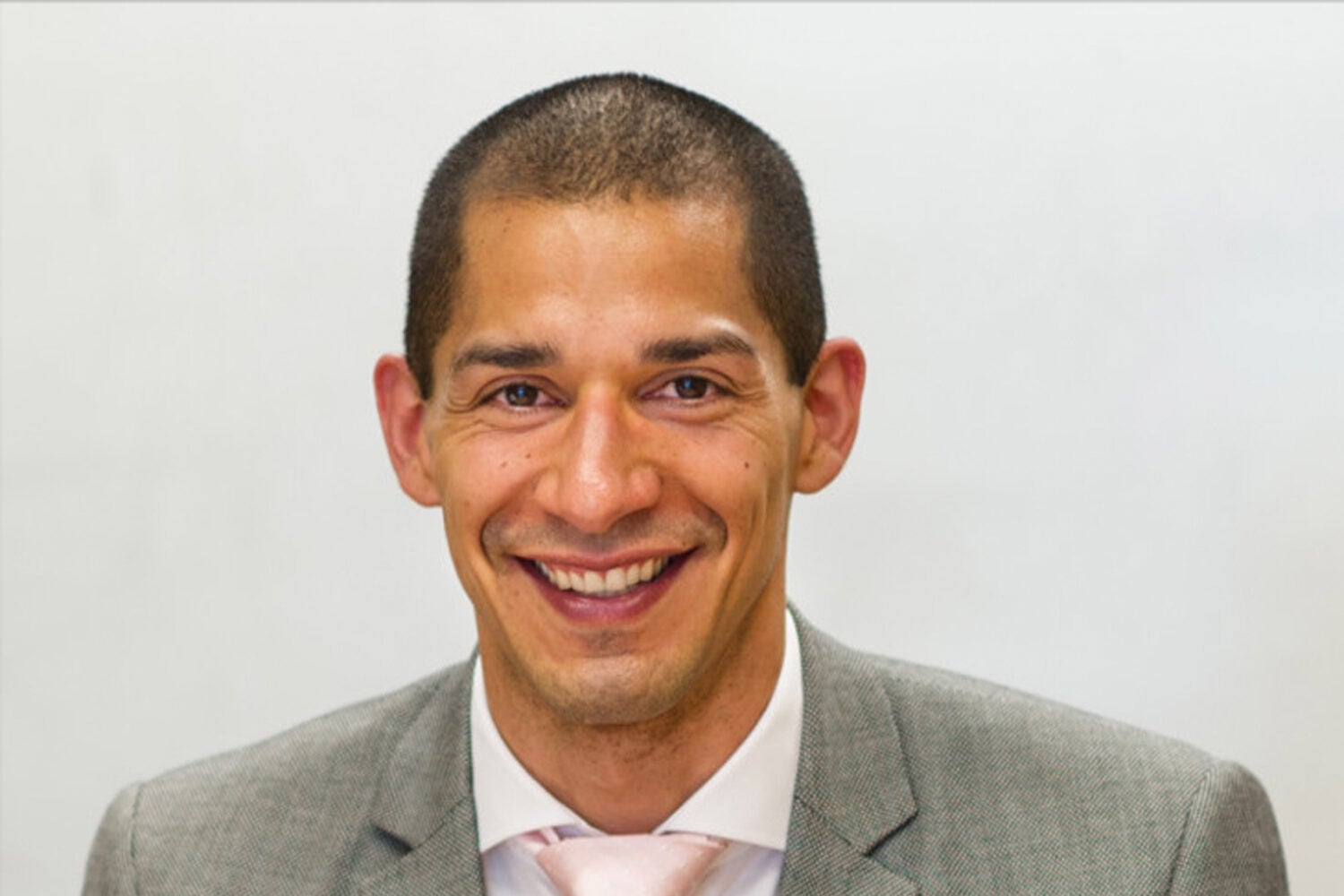Ryan D. Doerfler ’13, who focuses his research on critically examining the place of the federal judiciary in the American legal and political order, will join the Harvard Law faculty as a professor of law, effective July 1.
Doerfler is currently a professor of law at the University of Chicago, where he teaches in the areas of administrative law and legislation. From 2016 to 2019, he was an assistant professor of law at the University of Pennsylvania. In the fall of 2018, he was a visiting assistant professor of law at Harvard.
“Ryan Doerfler is a brilliant, original scholar who has rigorously applied the insights of language philosophy to shed important new light on the way we should read statutes,” said John F. Manning ’85, the Morgan and Helen Chu Dean and Professor of Law at Harvard Law School. “A great teacher and colleague, Professor Doerfler’s ideas and energy will enliven our classrooms and our intellectual life. We’re delighted to welcome him back to the Harvard Law School community.”
Doerfler’s recent scholarship includes a critical reassessment of the embrace of judicial review within the liberal legal tradition and an analysis of the relationship between theories of statutory and constitutional interpretation and a fundamental commitment to democratic self-rule. A legal scholar and philosopher, Doerfler’s work on questions of statutory and constitutional interpretation grew from an interdisciplinary focus on epistemology and philosophy of language.
His academic work has been published in numerous leading law journals. He has a forthcoming article, “Late-Stage Textualism,” in the Supreme Court Review, and he also recently co-wrote, with Yale Law Professor Samuel Moyn ’01, “Democratizing the Supreme Court,” California Law Review (2021), and “The Ghost of John Hart Ely,” published in the Vanderbilt Law Review (2022). In a recent Vanderbilt Law Review podcast, Doerfler and Moyn discuss the ideas that undergird the late constitutional law scholar John Hart Ely’s theory of judicial review.
Other articles include “Can a Statute Have More Than One Meaning?” (New York University Law Review, 2019), which examines whether statutory language can mean different things in different cases, and “High-Stakes Interpretation,” (Michigan Law Review, 2018), which explores why courts often interpret text differently when deciding high-stakes cases.
His popular writing has also appeared in the Atlantic, Jacobin, the Nation, the New Republic, and the Washington Post.
“I am incredibly excited to be returning to Harvard,” Doerfler said. “I can’t wait to join the growing community of scholars who are skeptical of the role of the federal judiciary within our democracy.”
“I first met Professor Doerfler at Harvard Law School’s third Celebration of Latino Alumni, shortly after he joined the faculty at the University of Pennsylvania,” said Andrew Crespo ’08, the Morris Wasserstein Public Interest Professor of Law at Harvard Law School. “In the years since, I’ve watched with admiration as he established himself as not only a brilliant scholar of statutory interpretation but also a leading public intellectual and critic of the Supreme Court’s role in American society. Thinking back to the community that gathered when we first met, I know his appointment will have special meaning to our Latino students and alumni, many of whom have waited for decades to see a Chicano professor of law sitting on the Harvard Law School faculty.”
Doerfler joined the Chicago faculty in 2019, after serving as a Harry A. Bigelow Teaching Fellow there from 2014 to 2016 and as the Walter V. Schaefer Visiting Assistant Professor of Law during the winter of 2019. In the fall 2019, he was the Nathaniel Fensterstock Visiting Professor of Law at Columbia.
Doerfler earned a B.A. in philosophy from Wake Forest University in 2004 and a Ph.D. in philosophy from Harvard University in 2011. He went on to law school at Harvard and earned a J.D. in 2013. After graduating from Harvard Law School, he clerked for the Hon. Sandra L. Lynch of the U.S. Court of Appeals for the First Circuit.
